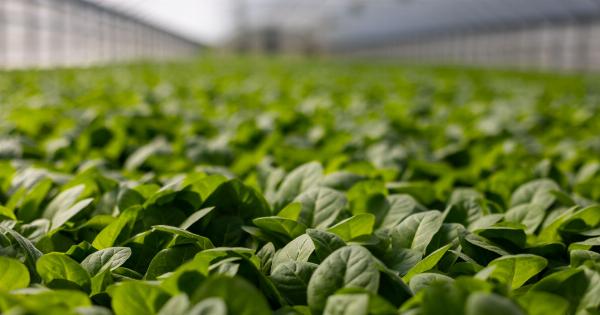When it comes to choosing between frozen vegetables and fresh vegetables, there are multiple factors to consider. While fresh vegetables are often thought of as the superior option, frozen vegetables can have many benefits as well.
In this article, we will explore the differences between frozen and fresh vegetables and determine which is better for you.
1. Nutritional Value
Fresh vegetables are often associated with having greater nutritional value, but the truth is that frozen vegetables can be just as nutritious. In fact, studies have shown that frozen vegetables are sometimes even more nutritious than fresh vegetables.
This is because frozen vegetables are often picked and frozen at their peak ripeness, which ensures that the nutrients are preserved.
2. Convenience
One of the major advantages of frozen vegetables is their convenience. They are pre-cut and ready to use, which makes meal preparation much easier and faster.
Fresh vegetables, on the other hand, require washing, peeling, and cutting, which can be time-consuming. Frozen vegetables are also available all year round, regardless of the season, while fresh vegetables are only readily available during the peak season.
3. Cost
Frozen vegetables are often less expensive than fresh vegetables, especially during the off-season. This makes them a more affordable option for those on a budget.
Additionally, frozen vegetables have a longer shelf life, which can save you money by reducing food waste. Fresh vegetables, on the other hand, can be a bit costly, especially if they are out of season or imported.
4. Taste
When it comes to taste, fresh vegetables are often considered to be superior. This is because they are generally crisper, sweeter, and more flavorful. However, this is not always the case. Frozen vegetables can be just as tasty if they are cooked properly.
It’s important to note that frozen vegetables can have a slight change in texture due to the freezing process.
5. Cooking Methods
Another factor to consider is the cooking method. Frozen vegetables are often preferred for dishes that require longer cooking times, such as stews and soups.
This is because they hold up better during longer cooking times and can help to thicken the dish. Fresh vegetables, on the other hand, are better for dishes that require shorter cooking times, such as stir-fries or salads.
6. Storage
Storage is also an important factor to consider. Fresh vegetables need to be refrigerated and used within a few days, or they will spoil.
Frozen vegetables, on the other hand, can be stored in the freezer for months, which makes them a more convenient option. This also reduces the need to go to the grocery store frequently.
7. Pesticide Residue
When consuming fresh vegetables, there is a risk of consuming pesticide residue. This is because traditionally grown vegetables are sprayed with pesticides to protect them from pests.
Frozen vegetables have a lower risk of pesticide residue since they are often frozen shortly after harvesting, which means they have less exposure to pesticides.
8. Environmental Impact
When it comes to the environmental impact, fresh vegetables can have a higher impact due to transportation and distribution. Fresh vegetables are often transported over long distances, which results in higher carbon emissions.
Frozen vegetables, on the other hand, are often grown locally and frozen at a nearby plant, which reduces the environmental impact.
9. Variety
Frozen vegetables offer a wider variety of options, as they are available year-round and are not limited to the current season or geographic location. This means you can have access to different vegetables, even if they are not available in your region.
Fresh vegetables, on the other hand, are limited to what is available during the current season and in your geographic location.
10. Overall Winner
Overall, both frozen vegetables and fresh vegetables have their advantages and disadvantages. The decision on which to choose ultimately depends on your personal preference, lifestyle, and specific needs.
Generally speaking, fresh vegetables are the best option when it comes to taste and texture, while frozen vegetables are more affordable and convenient. It’s recommended to incorporate both frozen and fresh vegetables into your diet for optimal results.































